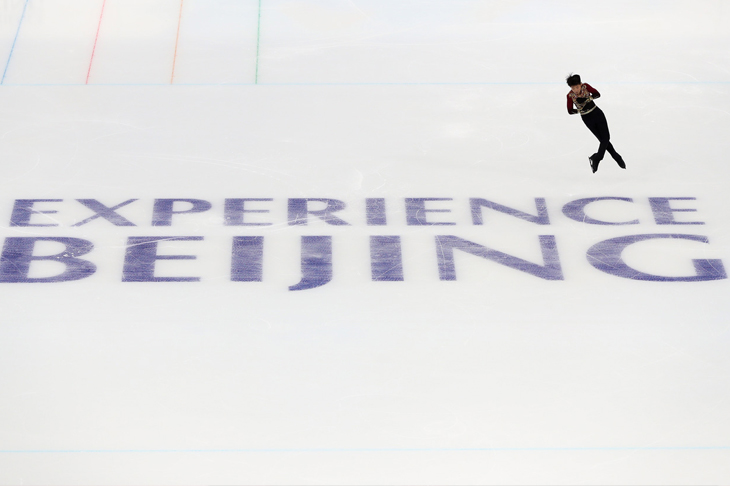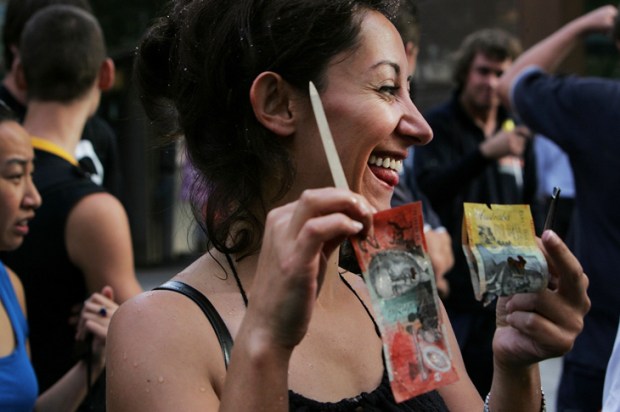The Winter Olympic Games will be held from February 4-20 in a ‘green, safe and simple’ way, and for that reason will prove ‘splendid and successful’.
Don’t take it from me. Take it from someone who knows: Xi Jinping, the paramount leader of the People’s Republic of China, who handily announced this during a recent visit to workers at the main Games sites in Beijing.
He has not travelled out of China for two years, and when he does leave the Communist Party HQ of Zhongnanhai in central Beijing these days, it is increasingly to conduct such ‘on-the-spot-guidance’ tours, of the sort pioneered by the Kim dynasty in neighbouring North Korea, China’s only formal ally.
These Games are being held in a very different setting from the 2008 Beijing Summer Games, for whose organisation Xi ,as vice president, had special responsibility.
He then supervised an event that produced widely the response he sought: awe and wonder. And the opening ceremony of next month’s Winter Games will be directed, as was that of the Summer Games, by Party-favourite, film-maker Zhang Yimou.
Beijing 2008 was not a Sydney-style friendly Olympics, but one in which order and control were paramount. The Party wished to underline that the PRC was emerging centre stage, at the top of the world order.
Four years later, Xi became general secretary of the Party. Since then, with his power unchallenged — and due to the surveillance-state he has entrenched, virtually unchallengeable — his attitude to the Olympics has stiffened, like his attitude to the international order in general.
Like many other multilateral bodies, the International Olympic Committee (IOC) has evolved from one that Beijing sought to impress or flatter, to one now educated to court Beijing’s favour. This was underlined by the bizarre recent intervention of IOC chief Thomas Bach to vindicate the PRC’s treatment of tennis player Peng Shuai.
Despite the warm, worldwide response to Tokyo’s generous but Covid-constrained hosting of the Summer Games, six months ago, public criticism of opening such international doors forced the resignation of Japan’s Prime Minister, Yoshihide Suga, who was replaced in October by Fumio Kishida.
Nothing like this is conceivable in China. The ruling Party will ride roughshod over whatever challenges the Winter Olympics throw up. And so far, talk of meaningful boycotts has led nowhere.
There is, however, a huge event scheduled for 2022 on which Xi is singularly focused: the 20th National Party Congress, in November. This must be managed to return him by acclaim as general secretary for a further five-year term, guaranteed effectively — due to his refusal to line up a successor — to be followed by another, making him China’s ruler, health permitting, until at least 2032.
No other event in China or in the world this year matters nearly as much to Xi or his Party. There, Xi will announce, in a three hour speech, his — and thus China’s — priorities and plans.
The congress setting must comprise controlled celebration of China’s ‘rejuvenation’ and stability – a word used 25 times in a recent high-level Party report. No surprises, no challenges can be tolerated.
The most likely source of upsets to Xi’s plans is that unwelcome guest at so many feasts, Covid. Uniquely among major countries, China has retained rigidly its insistence on elimination, on zero-Covid.
Local officials have been punished for any cases in their cities, while Xi continues to be lauded as the ‘People’s Leader’ winning the ‘People’s War’ against the pathogen. For instance, three managers of a logistics company in Dalian were recently jailed for terms from 39 to 57 months after Covid was allegedly introduced there by cold-chain goods the firm handled. Non-Chinese scientists doubt that cold surfaces can transmit the disease.
The success of zero-Covid is being tested as the Omicron wave surges towards its anticipated worldwide peak around the time of the Winter Olympics. For Chinese-made vaccines appear less effective against Omicron and China’s ‘herd immunity’ has been limited by its elimination strategy.
The answer from Beijing: more of the same. Vast cities such as Xi’an and Zhengzhou, each with 8 million inhabitants, and last week Tianjin with 11.5m, have recently been mostly locked down despite registering only a few Omicron cases each. Everyone in Tianjin, including children, was tested within 48 hours.
Zero-Covid — akin to the overall CCP lockdown of Chinese people, to which they have grown accustomed over generations — suits Xi’s core 2022 goal of a compliant Party Congress, so will likely be retained until then.
Huang Chun, representing the Games Organising Committee, claims that China’s ‘closed-loop’ system, physically separating everyone involved from the local population, is keeping Omicron out of the strategic Olympic zones in host cities Beijing and Zhangjiakou. City residents have been ordered to avoid all contact with Olympic vehicles — marked with large red signs —even if they crash. Those inside the ‘loop’ will travel on high-speed rail systems parallel to the public routes.
But a further testing event intervenes before the Olympics start: Chinese New Year — Spring Festival — celebrating the Year of the Tiger, beginning February 1, when hundreds of millions usually travel to their home cities. Will this be postponed again, provoking mass grumbling? If it goes ahead, could it trigger an Omicron wave imperilling the Olympics?
About 3,000 athletes are expected for the Games. Those fully vaccinated, with their officials, and media, will enter the ‘closed-loop’ on arrival in China, others must quarantine for 21 days first. All will be Covid tested daily. No spectators from overseas are permitted, and the authorities have just announced that no tickets will be sold. Instead, ‘groups of spectators’ will be invited – meaning party members and workers deemed compliant.
Nothing is left to chance. The events are set in an extraordinarily dry region, but 300 bright yellow ‘snow guns’, fed by water from local reservoirs, will generate 1.2 million cubic metres of artificial snow. Plans to use the Olympics to launch a permanent winter sports zone have been criticised for dubious sustainability.
The Foreign Correspondents’ Club of China said that inquiries about reporting on the Games ‘have been met with conflicting answers or neglected completely’.
But having pervasive control at home, Xi is mostly indifferent to what outsiders think.
That’s just as well. Otherwise, given the PRC’s popularity, he’d be skating on very thin ice indeed during these wintry Olympics.
Got something to add? Join the discussion and comment below.
Get 10 issues for just $10
Subscribe to The Spectator Australia today for the next 10 magazine issues, plus full online access, for just $10.
Rowan Callick, twice a China correspondent for the Australian including during the Beijing Olympics, is an Industry Fellow at Griffith University’s Asia Institute.
You might disagree with half of it, but you’ll enjoy reading all of it. Try your first month for free, then just $2 a week for the remainder of your first year.














Comments
Don't miss out
Join the conversation with other Spectator Australia readers. Subscribe to leave a comment.
SUBSCRIBEAlready a subscriber? Log in